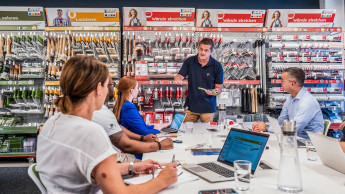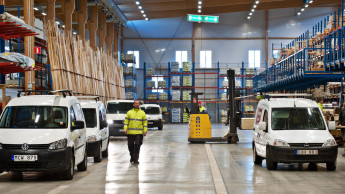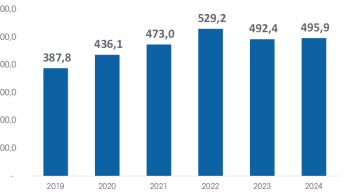For those of us who are enthusiasts for the general objectives of the European project, it is sometimes a cause of frustration that the UK is so different from the other countries of the Union. Although we understand the importance of diversity within the European family of nations, we do sometimes wonder how that stretch of water which separates the UK from the rest of Europe is so difficult to bridge (despite the Channel Tunnel). Why have we dragged our feet for so long on European union? Why are we still so resistant to the implementation of the euro? Why do we drive on the left?
It’s the same in retailing, and particularly in DIY. Why is our market, almost uniquely, so concentrated into the hands of so few powerful retailers? Why are there no DIY retailers from outside the UK active in our market? Why is there only one UK retailer (B&Q) which has any involvement in other European markets? Why is the warehouse-style concept so much more developed in the UK than in other countries? Why do our houses have walls made from plasterboard? Why do we have carpet in the bathroom?
There may be straightforward answers to some of these questions, but definitely not to all of them. What is certainly true is that this diversity adds to the challenges for any European retailers who might want to dip their toes in the UK market. What is perhaps more likely is that the traffic will come the other way - an American retailer exploiting the position of the UK market as a springboard into Europe. In fact, there have for many years been rumours of Home Depot, the world’s largest DIY retailer, doing precisely this. This has not happened yet, although the arrival of Wal-Mart in the UK via its purchase of Asda shows what is possible - a massive global retail brand exploiting the ‘UK difference’ to gain a European foothold.
Anyone who looks at the supply base of the UK market will soon observe that there are many examples of major European brands who are uniquely restricted in their UK market share by powerful domestic manufacturers. This is perhaps less true now than it was some years ago, as retailers have sought to set up global sourcing operations. However, it remains a feature, and perhaps all we can say is: Vive la différence!

 Menü
Menü















 Newsletter
Newsletter